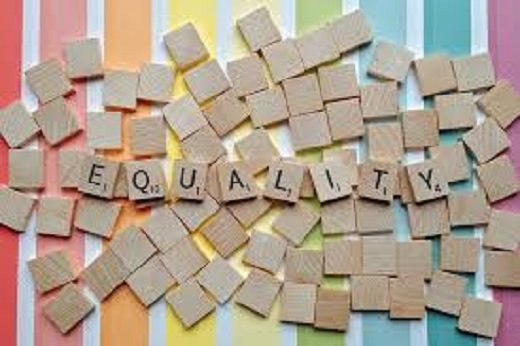What do you understand by equal opportunities in the workplace?

What is the pay gap?
I was having a little chat with someone the other day about the recent pay-gap storm that erupted following a certain British broadcasting company revealing the salaries of it’s high-profile presenters. Initially, the immediate backlash I recall seeing on the morning news amused me. As I sipped my early morning cup of Joe, I instinctively chuckled – “Haha, busted!”. But then I realised that this isn’t funny. There appears to be a significant pay gap between male and female staff, and a further division in the ethnicity of its best paid presenters. Suddenly, I wasn’t so amused. If this is accurate, then we need to seriously have a little think about the equality and diversity issues that it draws attention to and about the legal obligations that companies in the UK have
Legal requirement
In the UK, companies are legally required to comply with procedures to ensure that discrimination is eliminated and expectations of equality are met. That is to say, all workers must be treated equally and be given the same set of opportunities regardless of their race, age, sex, gender (yes, they are two different things), sexuality, disability, culture or anything else that might be discriminated against. This is to ensure that an inclusive and fair working environment exists, and that no form of perceived difference is an obstacle in career progression.
So, after saying the words “equality” and “diversity” a number of times, I find myself thinking about what they actually mean. I mean, we talk about them a lot, we expect to hear and read the words when we go to work or start a new job – and managers rarely disappoint! They throw us some policy papers when we start our new positions or they ask us “What do you know about equality and diversity?” when we sit nervously answering questions in an interview. Repeated exposure to these terms seems to fool us into perceptions of understanding, but what level of familiarity are we achieving? Have you ever had this question come up in an interview or a similar situation and instinctively think you’ve got it in the bag, only to realise that actually you might not? Frankly, I don’t think I ever experienced a meaningful conversation with anyone at work about it until now.
But why is this such a big deal? Surely, a workforce is a workforce regardless of diversity? Well. taken most literally, yes. However, it could be argued that having a diverse workforce means that an organisation can offer a wide range of ideas, skills and resources to the business, thus giving it a competitive edge. Now if that’s not worth the scrabble points, I don’t know what is! There is also a much wider pool of talent available to the organisations which embrace diversity and they can reap the benefits of a much broader market. I’ll even throw in improved productivity and a raised profile within the community to the mix too.
It is argued that some of the key benefits of active diversity management and encouraging a diverse staffing cohort include benefitting from knowledge of different areas of the community, which can be utilised, as well as having a better understanding of market segments and consumer behaviour. The working environment that diversity management initiatives could produce may also be beneficial to employees, such as improved appreciation, understanding and respect for difference where contrasting perspectives can be encouraged. Why’s that helpful? Well, when there is a culture of respect there are reduced individual or collective insecurities, and when there are no barriers to progression the workforce feels more positive about their jobs and will be more committed to working hard for the company that is working for them. Join the dots and you can see improved team productivity and success, raised morale and motivation and then the glory of employee progression in a vibrant, inclusive and nurturing environment. And who wouldn’t want to do business with an organisation like that!
Sounds amazing, right? However, it is clearly the case that some companies continue to breach compliance regulations and fail at their own equal opportunities policies – don’t be that company. Equality and diversity are terms that define a set of values that form the very context of contemporary society, and that includes positive and progressive experiences in the workplace. Beyond your legal obligations to maintain that, it’s also clear that active diversity programmes have significant beneficial knock-on effects for organisations, where productivity is enhanced and success for your business increases.
Tags: eLearning, Equal Opportunities